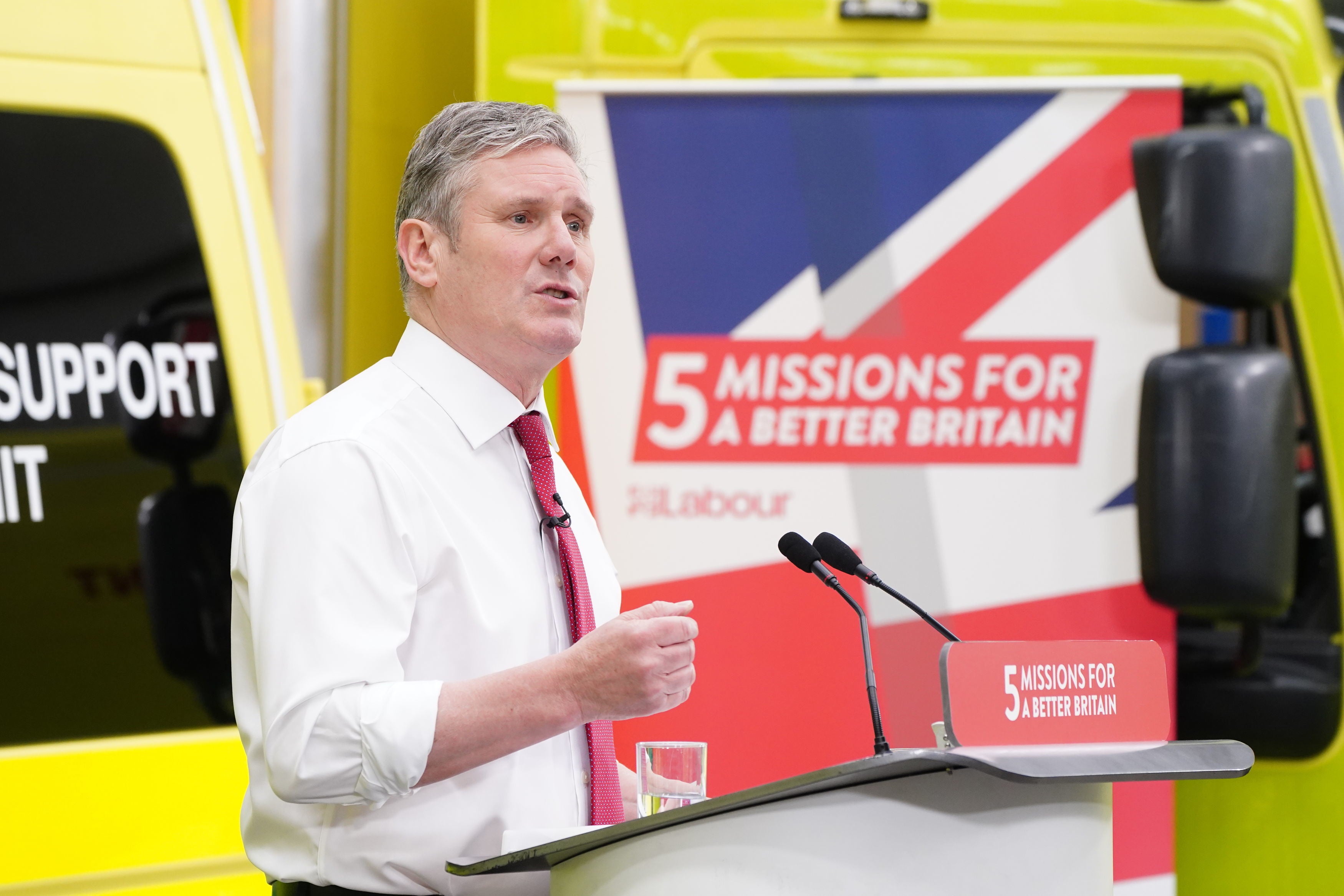Is Starmer’s plan for the NHS the real deal – or smoke and mirrors?
The Labour leader would have to work hard to fufil his pledges given the current state – and the future prospects – of the UK economy, writes Sean O’Grady


Labour leader Sir Keir Starmer's latest speech on the NHS has set out ambitious performance targets and some radical ideas about the use of new technologies and reform to make the service more efficient. There was much detail in the wide-ranging address. The question in the run-up to the election, and into a prospective Labour government, is how achievable it will be.
What does Starmer want?
A lot. He says his “national mission” is to make the NHS “fit for purpose". That includes ambulances arriving within seven minutes for cardiac arrest; four-hour waiting targets being met in A&E; “planned treatment within 18 weeks”; and that GPs will have the highest satisfaction rate on record.
However, that is far from all. He also promises – among other things – to “improve healthy life expectancy for all and … halve the inequality gap between different regions of England”; mental health “hubs”; to make suicide prevention a new priority; more choice for patients to go to a hospital within the region they live in with shorter waiting times; a new NHS app; more GPS working on a salaried rather than self-employed basis; ending health inequalities such as in maternity care for Black mothers; cardiovascular diseases (heart attacks and strokes) down by a quarter, within a decade; and “we will make sure 75 per cent of all cancer is diagnosed at stage one or two” (which would be particularly good for patient recovery and sustainable budgets); and more and better trained staff. Phew.
What about the ban on ads for junk food?
Starmer has been wise, from a political rather than a medical point of view, to avoid any new taxes on food and drink. Though presumably retaining the “sugar tax” on soft drinks introduced by George Osborne (and a great success). Instead, the emphasis will be on restricting advertising of vape products, fast food and other unhealthy products aimed at young people. That should help reduce obesity and poor health taking hold of the younger generation, and save money on trying to deal with health problems in the longer term. The upside is that it won’t add anything to family budgets during the cost of living crisis.
Is all this affordable?
Starmer has four lines on this. First, that individual pledges will be paid for from already declared targeted new taxes such as abolishing non-dom status and tax breaks for private equity. Second, that reforms and better prevention will yield savings; and, third, that general budget plans will be revealed closer to the election. The fourth leg of the fiscal chair is that fresh funds can come from economic growth, and that Labour’s “first mission” in government will be to: “Secure the highest sustained growth in the G7 – with good jobs and productivity growth in every part of the country making everyone, not just a few, better off,” Starmer said.
Given that the fortunes of the economies of the United States, Canada, France, Germany, Japan and Italy are mostly out of the control of Ms Reeves, and Brexit continues to exert its malign influence, it’s hard to see why this will be the case, and thus why the NHS will get the money it needs.



Join our commenting forum
Join thought-provoking conversations, follow other Independent readers and see their replies
Comments